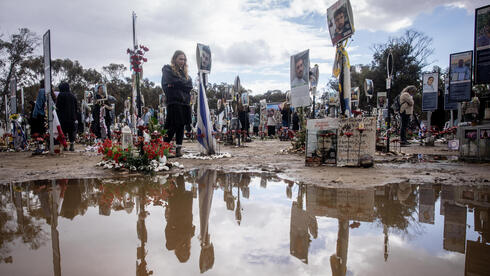The report relies on testimony from a rape survivor at the Nova Festival, 15 released hostages, 17 eyewitnesses or listeners to attacks, 27 rescue workers and extensive visual documentation. Sexual violence occurred in at least six locations: the Nova Festival site, Highway 232, Nahal Oz base and the kibbutzim of Re’im, Nir Oz and Kfar Aza. It also documents sexual assaults against hostages during captivity.
4 View gallery
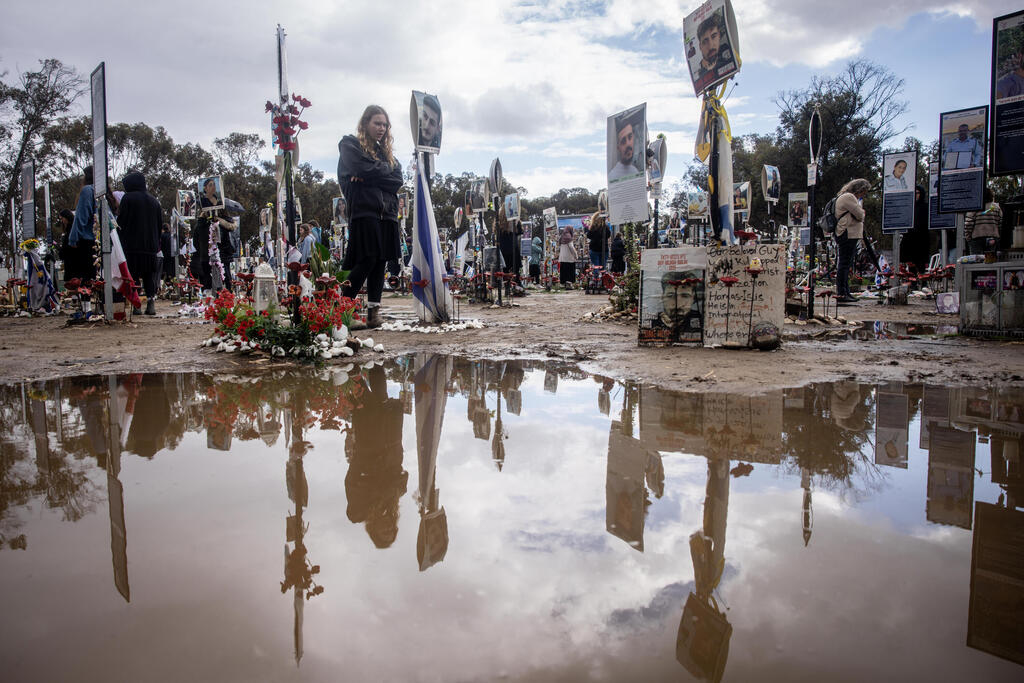

(Photo: Chris McGrath/Getty Images)
The report states that “the vast majority of those sexually assaulted were among the 1,166 victims who were silenced forever.” It adds that “many survivors may be too traumatized to recount their experiences.” The authors warn that additional testimonies may emerge over time.
Clear patterns of sexual violence emerge from the findings, including victims found partially or fully naked with their hands tied, sometimes to trees or poles; evidence of gang rape followed by executions; and severe genital violence. Sexual abuse also continued in captivity — released hostages reported forced nudity, physical and verbal sexual harassment, sexual attacks and threats of forced marriage.
At least 15 sexual assaults are detailed in the report, including four cases of gang rape. The project does not gather direct testimony but compiles open-source intelligence, reports received by the team and other information, analyzing and categorizing it by evidentiary value. Firsthand sexual assault testimonies mainly come from released hostages who spoke publicly in interviews.
The report lists at least 16 severe sexual assault incidents: an attempted rape of a woman at the Nova Festival and 15 sexual assaults testified to by released captives. Among these were minors who reported physical and verbal sexual harassment, being left naked and sexually assaulted. At least six female survivors testified to threats of rape and forced marriage during captivity.
One released captive, Keith Siegel, told the American program “60 Minutes” that Hamas terrorists shaved men’s hair—including their private parts—in an attempt, the report says, “to strip victims of their sexual and gender identity.”
Seventeen witnesses to attacks described at least 15 distinct sexual assault incidents, including four gang rapes and three cases of severe genital violence. These occurred mainly at the Nova Festival, Nahal Oz base and Highway 232. In most cases, victims were killed immediately after assault; in some, rape occurred post-mortem.
Additional evidence was collected from first responders to massacre sites — rescue teams, paramedics, ZAKA volunteers and civilians — including photographs and videos. Their testimonies describe about 30 cases of sexual violence on murdered victims, many found partially or fully naked with gunshot wounds to genital areas and other brutal injuries.
4 View gallery
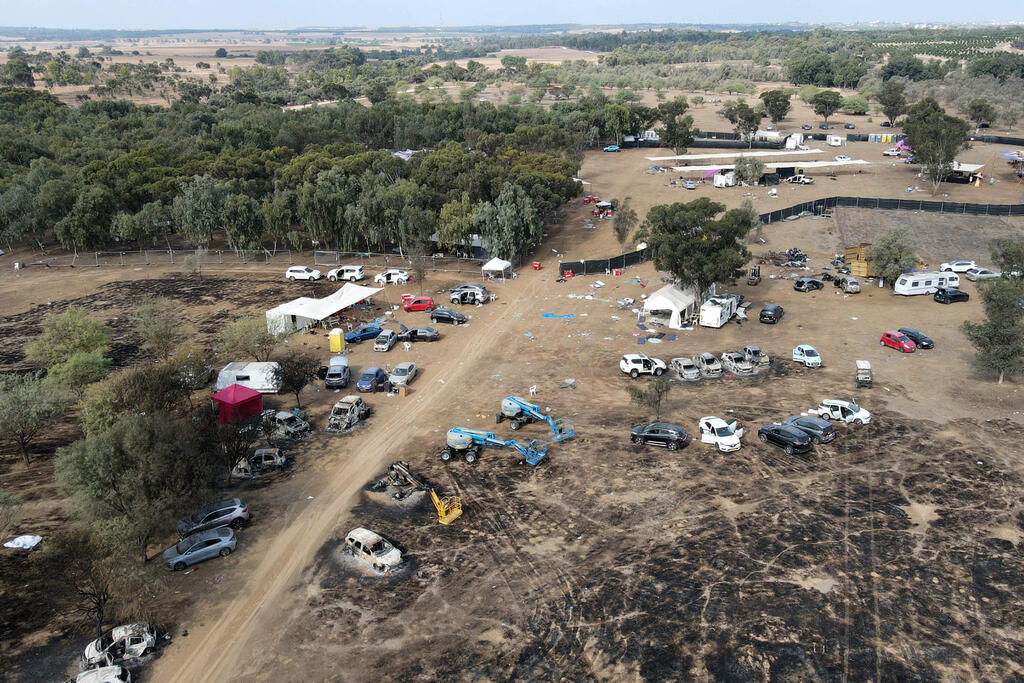

At the Nova Festival site, rescuers found “dozens of naked women’s bodies, many bleeding from genital wounds caused by gunfire,” according to the report. Staff from the nearby Shura camp who handled bodies also reported genital burns on victims.
Some victims were found with objects inserted into their intimate areas before being murdered. At least three such cases were documented: a woman at Kibbutz Be’eri with a large metal object inside her vagina; a man found bound and naked with a metal object in his groin area; and another man found murdered with a metal object inserted into his rectum. The report stresses these incidents occurred in multiple locations over a short time frame, indicating a repeated, deliberate practice—not isolated horrors.
Among the survivors is Amit Sosna, who recounted being sexually assaulted under threat of a weapon, beaten, chained by the ankle and forced to report her menstrual cycle to captors. She described how her captor held a pot of boiling water and later gave her hot water to pour on herself in the shower.
Maya Regev, another survivor, told the New York Times how terrorists tore off her clothes and abused her wounded leg while mocking her. “Hamas terrorists tore my clothes off,” she said. “They took away my identity and my name. The guard told me every day that if the IDF came to rescue me, he would shoot me immediately and wouldn’t die alone.”
4 View gallery
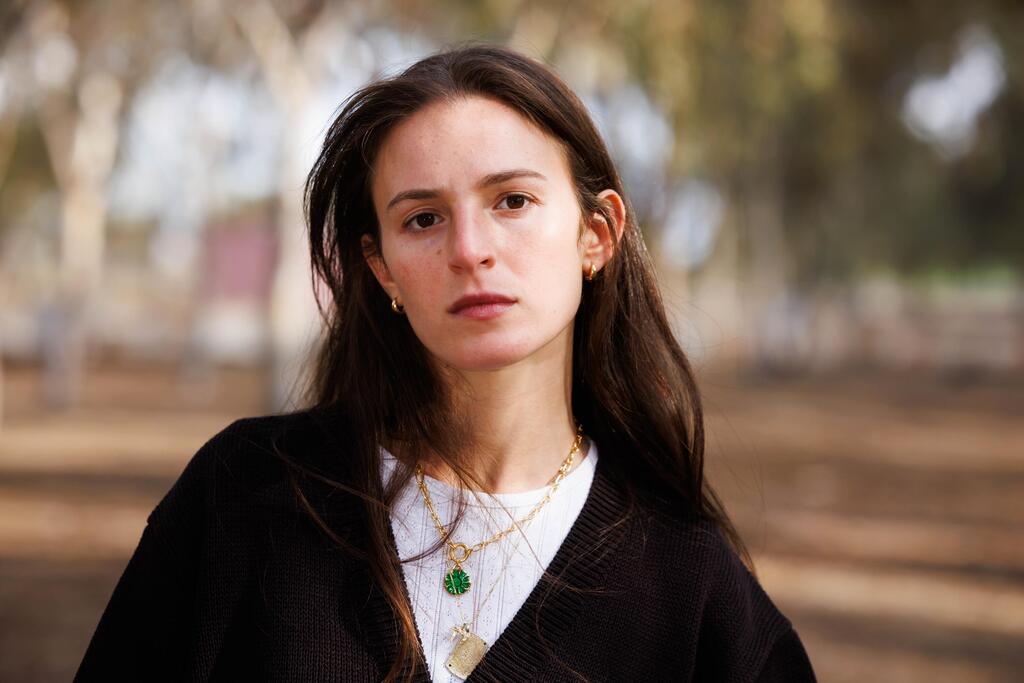

Maya Regev
(Photo: Ziv Koren)
Ron Prager, a survivor from the Nova Festival, described hearing screams from bushes: “A group of girls, a trio, I think they were trying to run to their car but ran into terrorists above. They shouted, ‘Please, please, we beg you, we didn’t do anything,’ and then we heard four shots and total silence.” Shortly after, he heard more girls shouting, “They’re raping me, help me, help me.” He said, “You hide, powerless, you just can’t do anything. Nothing. We have no weapons, we’re helpless, hiding amid all this hell.” Other survivors reported similar incidents; the report estimates at least four gang rapes took place, possibly more.
The report’s authors—Professor Ruth Halperin-Kaddari of Bar-Ilan University’s Rokman Center for Women’s Advancement, retired District Judge Nava Ben-Or and Lt. Col. (res.) Adv. Sharon Zaggi-Penchas, former chief military prosecutor of the IDF—emphasize the importance of international recognition of sexual violence as a weapon of war.
“Our goal is to show how to bring leaders and perpetrators to justice, even when direct testimony against each individual is lacking,” said Halperin-Kaddari. “We state clearly: sexual violence in conflict is a weapon. It’s not random, not aimed only at individuals and not done without higher-level intent. It’s time the international community treats it as such.”
The use of sexual violence by Hamas terrorists has been documented in previous reports, including one by UN envoy Pramila Patten six months after October 7, and was central to the ICC’s arrest warrant for Mohammed Deif, based on testimonies of abuse against hostages, mostly women.
This current report aims to establish a legal evidentiary basis to prosecute Hamas terrorists for the sexual violence committed. The authors stress that criminal liability should extend not only to direct perpetrators but to all participants in the attack, including those who contributed, knew or could have known of the crimes.
At the report’s unveiling at the President’s Residence, released captive Ilana Gritzewsky thanked Michal Herzog, wife of President Isaac Herzog: “Thank you for listening to these painful words, thank you for not burying your head in the sand. War crimes—I never thought I’d have to tell such stories, especially war crimes against me and so many women, children and men.”
4 View gallery
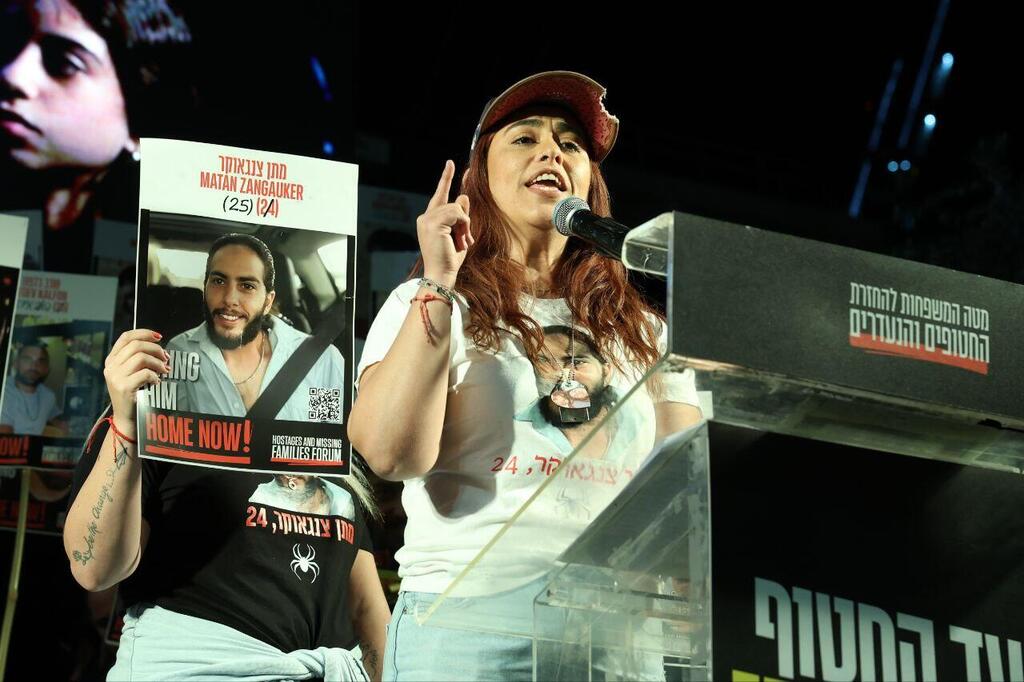

Ilana Gritzewsky
(Photo: Dana Kopel)
Gritzewsky recalled the horrific day: “On Saturday, 7/10, I was at home in Kibbutz Nir Oz with my partner, Matan. Suddenly—noise, explosions, screams, then a door breaking down.”
“They kidnapped us. I remember guns aimed at me. I remember hands that weren’t mine touching me. I remember screaming—and then darkness,” she said. “When I woke, I was half-naked, surrounded by terrorists. They beat me, touched me. I didn’t know what happened to my body in those lost minutes, but my soul already knew: nothing would ever be the same.”
She described “hell in captivity—hunger, thirst, loneliness, physical and mental abuse. My body ached, my bones broke. But the humiliation, fear, feeling like someone else’s property—that pain never leaves. I was released after 55 days but I am not really free. True freedom exists only when no one has to endure what I did. Only when we are believed. Only when we don’t stay silent.”
“Today—almost two years later—people still ask if it really happened. If I was really raped, burned, murdered, kidnapped. If women were really harmed. If men were harmed. I say yes. It happened, and it is still happening. There are still hostages. Among them are men, a woman and my Matan. I don’t know what they are doing to him there, but I know what they did to me. I know exactly what they are capable of. I wake every morning afraid he’s going through what I went through. And there is nothing harder than that knowledge. I am here today for every woman who still can’t speak, for the men who were harmed and choke in silence, for those murdered whose voices will never be heard again, and for my Matan and the other 49 hostages still held in Gaza by those who harmed me,” she said. “I call on the president’s wife, the prime minister and the cabinet—don’t miss the opportunity to bring the hostages home. We are committed to bringing them all back. Sign the deal. End the war.”
